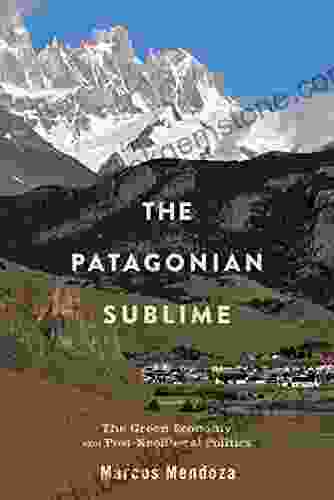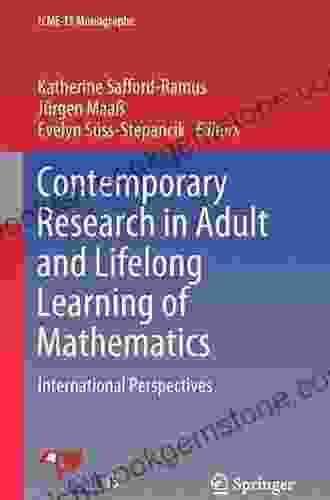The Green Economy and Post-Neoliberal Politics: Rethinking Economic Growth and Environmental Sustainability

The green economy is an economic model that aims to achieve sustainable development by promoting economic growth and environmental protection. It is based on the idea that we can decouple economic growth from environmental degradation, and that we can create a more prosperous and sustainable future for all.
The green economy has been gaining traction in recent years as a way to address the challenges of climate change, resource depletion, and environmental pollution. It has been endorsed by a number of international organizations, including the United Nations, the World Bank, and the International Monetary Fund.
However, the green economy is not without its critics. Some argue that it is simply a new form of neoliberalism, which promotes economic growth at the expense of social and environmental justice. Others argue that it is unrealistic to expect to decouple economic growth from environmental degradation.
5 out of 5
| Language | : | English |
| File size | : | 7015 KB |
| Text-to-Speech | : | Enabled |
| Screen Reader | : | Supported |
| Enhanced typesetting | : | Enabled |
| Word Wise | : | Enabled |
| Print length | : | 228 pages |
In this article, we will explore the green economy in more detail. We will discuss its key principles, its potential benefits, and its challenges. We will also consider the implications of the green economy for post-neoliberal politics.
The green economy is based on the following key principles:
- Decoupling economic growth from environmental degradation: The green economy aims to create a more prosperous and sustainable future for all by decoupling economic growth from environmental degradation. This means that we need to find ways to produce goods and services without harming the environment.
- Investing in renewable energy and energy efficiency: The green economy invests in renewable energy and energy efficiency as a way to reduce our reliance on fossil fuels. Fossil fuels are a major source of greenhouse gases, which contribute to climate change.
- Promoting sustainable agriculture and land use: The green economy promotes sustainable agriculture and land use practices that protect the environment. This includes practices such as organic farming, agroforestry, and conservation tillage.
- Creating green jobs: The green economy creates green jobs, which are jobs that contribute to the protection and restoration of the environment. Green jobs can be found in a variety of sectors, including renewable energy, energy efficiency, sustainable agriculture, and environmental protection.
The green economy offers a number of potential benefits, including:
- Reduced greenhouse gas emissions: The green economy can help to reduce greenhouse gas emissions by promoting renewable energy and energy efficiency. This can help to mitigate climate change and its associated impacts.
- Improved air and water quality: The green economy can help to improve air and water quality by reducing pollution from fossil fuels, industrial activities, and agriculture. This can lead to improved public health and well-being.
- Increased resource efficiency: The green economy can help to increase resource efficiency by promoting sustainable agriculture and land use practices. This can help to conserve natural resources and reduce waste.
- Job creation: The green economy can create green jobs, which can help to boost economic growth and reduce unemployment. Green jobs are often well-paying and offer opportunities for career advancement.
The green economy also faces a number of challenges, including:
- High investment costs: The transition to a green economy requires significant investment in renewable energy, energy efficiency, and sustainable agriculture. This can be a challenge for developing countries that have limited financial resources.
- Political resistance: The green economy can face political resistance from industries that are threatened by the transition to a more sustainable economy. For example, the fossil fuel industry has been a major opponent of the green economy.
- Consumer behavior: Consumers play a key role in the green economy by making choices about the products and services they purchase. However, consumers often make choices that are not environmentally friendly. For example, many consumers continue to drive gas-powered cars and buy products that are made from unsustainable materials.
- Rebound effect: The rebound effect occurs when increased efficiency leads to increased consumption. For example, if people drive more fuel-efficient cars, they may drive more miles, which can offset the environmental benefits of the fuel efficiency.
The green economy has a number of implications for post-neoliberal politics. First, the green economy challenges the neoliberal belief that economic growth is always good. The green economy recognizes that economic growth can have negative environmental and social consequences.
Second, the green economy calls for a more active role for government in the economy. The government can play a role in promoting renewable energy, energy efficiency, and sustainable agriculture. It can also play a role in regulating pollution and protecting the environment.
Third, the green economy emphasizes the importance of social justice. The green economy recognizes that the transition to a more sustainable economy must be fair and equitable. It must not disproportionately burden the poor and vulnerable.
The green economy is a promising new economic model that offers a number of potential benefits. However, the green economy also faces a number of challenges. It is important to address these challenges if we want to create a more sustainable and prosperous future for all.
The green economy has a number of implications for post-neoliberal politics. It challenges the neoliberal belief that economic growth is always good. It calls for a more active role for government in the economy. And it emphasizes the importance of social justice.
The green economy is a necessary step towards a more sustainable and just future. It is a future that is worth fighting for.
5 out of 5
| Language | : | English |
| File size | : | 7015 KB |
| Text-to-Speech | : | Enabled |
| Screen Reader | : | Supported |
| Enhanced typesetting | : | Enabled |
| Word Wise | : | Enabled |
| Print length | : | 228 pages |
Do you want to contribute by writing guest posts on this blog?
Please contact us and send us a resume of previous articles that you have written.
 Best Book
Best Book Page Flip
Page Flip Bookshelf
Bookshelf Literary loom
Literary loom Chapter
Chapter Bookish
Bookish PageTurner
PageTurner Bibliophile
Bibliophile Story
Story Inkwell
Inkwell Bookworm
Bookworm Labyrinth
Labyrinth Plot Twist
Plot Twist Prose
Prose Paperback
Paperback Storyteller
Storyteller Sanctuary
Sanctuary Fiction
Fiction Reading
Reading Chronicle
Chronicle Read
Read John Carey Cremony
John Carey Cremony Philip Ball
Philip Ball Mary Heron Dyer
Mary Heron Dyer Ronald Bergan
Ronald Bergan Timothy Brook
Timothy Brook Roger Cowell
Roger Cowell Pamela Cutter
Pamela Cutter Katy Sprinkel
Katy Sprinkel Niobia Bryant
Niobia Bryant Julia Summerfield
Julia Summerfield 1st Ed 2016 Edition
1st Ed 2016 Edition Robyn Carr
Robyn Carr Steve Cohen
Steve Cohen Jason A Ramos
Jason A Ramos Korani Connolly
Korani Connolly Michael Smith
Michael Smith Joy Horowitz
Joy Horowitz Megan Goldmine
Megan Goldmine Joe Kuster
Joe Kuster Eamon Evans
Eamon Evans Kelcey Coe
Kelcey Coe Joan Breton Connelly
Joan Breton Connelly Mary Stuart
Mary Stuart Sean Robins
Sean Robins Rebecca Kobrin
Rebecca Kobrin Tracy Lash Decrosta
Tracy Lash Decrosta Martha Hall Kelly
Martha Hall Kelly Shani Mootoo
Shani Mootoo Francis Tipene
Francis Tipene Thibault Ehrengardt
Thibault Ehrengardt N K Jemisin
N K Jemisin Peter Mayle
Peter Mayle Kevin Henry
Kevin Henry Tammy Ruggles
Tammy Ruggles Patrice Gopo
Patrice Gopo Maria Augusta Trapp
Maria Augusta Trapp Roger Zelazny
Roger Zelazny Michael A Hoey
Michael A Hoey Sally Blake
Sally Blake Nadia Owusu
Nadia Owusu Ton Viet Ta
Ton Viet Ta Christopher Lane
Christopher Lane Aer Ki Jyr
Aer Ki Jyr John Dvorak
John Dvorak Simona Merchant Dest
Simona Merchant Dest Sergio Toppi
Sergio Toppi Richard Feinberg
Richard Feinberg Joel Sonnenberg
Joel Sonnenberg Violet Ramis Stiel
Violet Ramis Stiel Mimi Grace
Mimi Grace Laura Reiter
Laura Reiter W Somerset Maugham
W Somerset Maugham Richard Paul Russo
Richard Paul Russo 1st Ed 2021 Edition Kindle Edition
1st Ed 2021 Edition Kindle Edition Mayukh Sen
Mayukh Sen James Hall
James Hall Paul Seydor
Paul Seydor Tom Sito
Tom Sito Manny Serrato
Manny Serrato Laurinda Reddig
Laurinda Reddig Rosemary Mahoney
Rosemary Mahoney James Ernest Shaw
James Ernest Shaw Elliot Beier
Elliot Beier Michael Psellus
Michael Psellus Wes Hubert
Wes Hubert Tanja Jung
Tanja Jung Steve Van Beek
Steve Van Beek Warren Dotz
Warren Dotz Michelle Jackson
Michelle Jackson Akire C
Akire C Steven Skaggs
Steven Skaggs Anne H Berry
Anne H Berry Diane Chamberlain
Diane Chamberlain Tim Gallagher
Tim Gallagher William Lidwell
William Lidwell Richard W Pointer
Richard W Pointer Kristin Harmel
Kristin Harmel Kelly Gay
Kelly Gay W David Baird
W David Baird Kay Redfield Jamison
Kay Redfield Jamison Tricia Rose
Tricia Rose Priscilla Batzell
Priscilla Batzell Linda Keteyian
Linda Keteyian Meniere Man
Meniere Man Paige R Penland
Paige R Penland William L Fox
William L Fox Tamsin Ley
Tamsin Ley Vladimir Geroimenko
Vladimir Geroimenko Jubilee Brown
Jubilee Brown Nick Barratt
Nick Barratt Katharine Branning
Katharine Branning Mike Grist
Mike Grist Silvana Paternostro
Silvana Paternostro Katherine Addison
Katherine Addison Daniel Silva
Daniel Silva Vivian Gibson
Vivian Gibson Bwwm Club
Bwwm Club Xander Boyce
Xander Boyce Marcelo Hernandez Castillo
Marcelo Hernandez Castillo Lewis Smile
Lewis Smile Neal Adams
Neal Adams Christian Blauvelt
Christian Blauvelt Julie Yip Williams
Julie Yip Williams Kenneth Laws
Kenneth Laws Kathy Valentine
Kathy Valentine Katie Dowe
Katie Dowe David J Schmidt
David J Schmidt Kenan Trebincevic
Kenan Trebincevic Javy Lopez
Javy Lopez Julian Rothenstein
Julian Rothenstein Requiem Scolopendra
Requiem Scolopendra Ursa Dax
Ursa Dax Robert Rummel Hudson
Robert Rummel Hudson Leo W Chang
Leo W Chang Don Peri
Don Peri Mike Lowery
Mike Lowery Nicole Pivirotto
Nicole Pivirotto M A Rothman
M A Rothman Calum Best
Calum Best Molly Bang
Molly Bang Tiya Rayne
Tiya Rayne Jesse Thistle
Jesse Thistle 1st Ed 2019 Edition Kindle Edition
1st Ed 2019 Edition Kindle Edition Shaopeng Chen
Shaopeng Chen Andrew Cunningham
Andrew Cunningham Lindy Viandier
Lindy Viandier Marie Louise Gay
Marie Louise Gay Robert M Goldstein
Robert M Goldstein Diana Kupershmit
Diana Kupershmit William R Forstchen
William R Forstchen James Hunter
James Hunter Richard Matheson
Richard Matheson Tom Brosnahan
Tom Brosnahan Maureen Hughes
Maureen Hughes Jean Guerrero
Jean Guerrero Lincoln Michel
Lincoln Michel Margo Bond Collins
Margo Bond Collins Vowron Prime
Vowron Prime Sam Shepard
Sam Shepard Kimberly Smith
Kimberly Smith Robin Hobb
Robin Hobb Naveed Rouhani
Naveed Rouhani Tim Moss
Tim Moss Patrick Mcgilligan
Patrick Mcgilligan Sonja Mejcher Atassi
Sonja Mejcher Atassi Elle Wright
Elle Wright K C Mills
K C Mills Daniel James Brown
Daniel James Brown Sharon Mckee
Sharon Mckee Derek Baxter
Derek Baxter Monica Huerta
Monica Huerta Marcello Di Cintio
Marcello Di Cintio 1st Edition Kindle Edition
1st Edition Kindle Edition Rem Koolhaas
Rem Koolhaas Neil Fontaine
Neil Fontaine Laird Barron
Laird Barron Honesty Price
Honesty Price Keiko Okamoto
Keiko Okamoto Louis L Amour
Louis L Amour Sosha Davis
Sosha Davis Paula Henriksen
Paula Henriksen Stan Tekiela
Stan Tekiela Miriam Giguere
Miriam Giguere Jeff W Bens
Jeff W Bens Nisha Garg
Nisha Garg M C Roberts
M C Roberts Renia Spiegel
Renia Spiegel Steve Stevenson
Steve Stevenson Deborah Fallows
Deborah Fallows Johno Ellison
Johno Ellison Ken Budd
Ken Budd Bill Rumpel
Bill Rumpel Matt Patterson
Matt Patterson Stephen Kirkpatrick
Stephen Kirkpatrick Kristina Harris
Kristina Harris Ilana Benady
Ilana Benady Svetlana Quindt
Svetlana Quindt Michael R Jackson
Michael R Jackson William Gibson
William Gibson Lauren Beukes
Lauren Beukes Reginald F Lewis
Reginald F Lewis Martin Gardner
Martin Gardner S G Seabourne
S G Seabourne Simon R Green
Simon R Green Kathy Barnette
Kathy Barnette Holly Madison
Holly Madison Tony Morgan
Tony Morgan Matthew Bourne
Matthew Bourne Sherri Granato
Sherri Granato Kim Barker
Kim Barker Daniel Gibbs
Daniel Gibbs Marc Cameron
Marc Cameron Sonja B
Sonja B Giovanni Iannoni
Giovanni Iannoni Liz Scheier
Liz Scheier Kenneth Ma
Kenneth Ma John L Turner
John L Turner Pat Dews
Pat Dews Joel Stratte Mcclure
Joel Stratte Mcclure K Alex Walker
K Alex Walker Jonathan D Sarna
Jonathan D Sarna Anne Manera
Anne Manera Victoria Rivera Mckinley
Victoria Rivera Mckinley Manuel Lima
Manuel Lima Paul A Moua
Paul A Moua Randi Minetor
Randi Minetor Molly Haskell
Molly Haskell John Wyndham
John Wyndham Mark Padilla
Mark Padilla Yishan Li
Yishan Li Svenja Reidelbach
Svenja Reidelbach Joseph Beuys
Joseph Beuys Laylah Roberts
Laylah Roberts Shelly Kim
Shelly Kim Julia Child
Julia Child Rayna Denison
Rayna Denison Janice Tingum
Janice Tingum Nicholas Sparks
Nicholas Sparks Clara Nieto
Clara Nieto Luis Angel Echeverria
Luis Angel Echeverria Blair Davis
Blair Davis Rebecca Roanhorse
Rebecca Roanhorse Maria Morera Johnson
Maria Morera Johnson Scott David Plumlee
Scott David Plumlee Phoenix Grey
Phoenix Grey Richard Fleischer
Richard Fleischer Sarah Vallance
Sarah Vallance Toni Morrison
Toni Morrison Jim Santos
Jim Santos Jonathan Clements
Jonathan Clements Shani Greene Dowdell
Shani Greene Dowdell Greg Gutfeld
Greg Gutfeld Brian Kevin
Brian Kevin Patti Bellantoni
Patti Bellantoni W Kamau Bell
W Kamau Bell Phil Cleaver
Phil Cleaver William Alexander Percy
William Alexander Percy Julie Beemer
Julie Beemer Vaughn Heppner
Vaughn Heppner Christopher Reeve
Christopher Reeve Matthew Stavros
Matthew Stavros Philip Lee
Philip Lee John Thompson
John Thompson Deborah Willis
Deborah Willis Omar Sharif Jr
Omar Sharif Jr Graeme Swann
Graeme Swann Loung Ung
Loung Ung Mladen Sutej
Mladen Sutej I C Robledo
I C Robledo Mark C Childs
Mark C Childs William Shatner
William Shatner Jl Seegars
Jl Seegars Patrick Herrendorf
Patrick Herrendorf Russell Zimmerman
Russell Zimmerman Yuliia Pozniak
Yuliia Pozniak David Roberts
David Roberts David S Luton
David S Luton Tim Severin
Tim Severin David Paleschuck
David Paleschuck David Baldacci
David Baldacci Margaret C Collier
Margaret C Collier Mimi Thorisson
Mimi Thorisson Karma Waltonen
Karma Waltonen Kim Kavin
Kim Kavin Ruth Reichl
Ruth Reichl Tom Sterling
Tom Sterling Michael Friel
Michael Friel Philippa Ballantine
Philippa Ballantine Mau Kun Yim
Mau Kun Yim Walter Mosley
Walter Mosley Linda Rodriguez Mcrobbie
Linda Rodriguez Mcrobbie Robert Gottlieb
Robert Gottlieb Tom Fay
Tom Fay Richard Lippe
Richard Lippe Suzanne Fredericq
Suzanne Fredericq Megan Carr
Megan Carr Miriam F Williams
Miriam F Williams Stephen Saad
Stephen Saad Charles Ney
Charles Ney Nien Cheng
Nien Cheng Lisa Maker
Lisa Maker Kate Bryan
Kate Bryan Raquel Cepeda
Raquel Cepeda K Wan
K Wan Krystyna Chiger
Krystyna Chiger Joyce Huber
Joyce Huber Norman Lebrecht
Norman Lebrecht Laura Lee Fritz
Laura Lee Fritz Lisa Congdon
Lisa Congdon Ryan Dempsey
Ryan Dempsey Mark Strand
Mark Strand Steven W Naifeh
Steven W Naifeh Peter L Phillips
Peter L Phillips Stephen Coles
Stephen Coles Stephen King
Stephen King Jon Contino
Jon Contino Dakota Krout
Dakota Krout Ruben Gallego
Ruben Gallego Miranda Bridges
Miranda Bridges Joyce Roa
Joyce Roa Odie Hawkins
Odie Hawkins David Cummings
David Cummings Judy Bolton Fasman
Judy Bolton Fasman Jo Thomas
Jo Thomas Rough Guides
Rough Guides Ryan Roenfeld
Ryan Roenfeld Rajat Gupta
Rajat Gupta Paolo Bacigalupi
Paolo Bacigalupi Azim Nanji
Azim Nanji William Carroll
William Carroll Tony Dungy
Tony Dungy Insight Guides
Insight Guides John Lewis Burckhardt
John Lewis Burckhardt Manifestation Publishing House
Manifestation Publishing House Chika Okeke Agulu
Chika Okeke Agulu Travis Bagwell
Travis Bagwell Paul Chiasson
Paul Chiasson Michael Oher
Michael Oher Matthew Israel
Matthew Israel Richard Delacy
Richard Delacy Joshua James
Joshua James John Fabian Carlson
John Fabian Carlson Kathy Cano Murillo
Kathy Cano Murillo W R Tymms
W R Tymms Ellis Cose
Ellis Cose Martina Carracedo
Martina Carracedo Ruby Dixon
Ruby Dixon Cath Caldwell
Cath Caldwell Emily Byrne Curtis
Emily Byrne Curtis Scape Martinez
Scape Martinez Jessica Fanigliulo
Jessica Fanigliulo Lauren Scruggs
Lauren Scruggs Alyssa Campbell
Alyssa Campbell Graham Rowley
Graham Rowley Liz Hurley
Liz Hurley Shelley Shepard Gray
Shelley Shepard Gray Kagan Mcleod
Kagan Mcleod Sangeeta Prasad
Sangeeta Prasad Patty Jansen
Patty Jansen John Davidson
John Davidson Yelapa Memo
Yelapa Memo Pauli Murray
Pauli Murray Nia Arthurs
Nia Arthurs Mary Boone
Mary Boone Carl E Schorske
Carl E Schorske Sean Platt
Sean Platt Wallace Terry
Wallace Terry Hope Edelman
Hope Edelman Patty A Wilson
Patty A Wilson Norman M Shulman
Norman M Shulman Duncan James
Duncan James Paul Thimou
Paul Thimou Victoria Charles
Victoria Charles Nicole Casey
Nicole Casey Michael F Steltenkamp
Michael F Steltenkamp Carly Murden
Carly Murden Robert Henri
Robert Henri Bernadette Simpson
Bernadette Simpson Julia Walker
Julia Walker Jessica Garrison
Jessica Garrison Richard S Dunn
Richard S Dunn Timothy S Susanin
Timothy S Susanin Scott Brown
Scott Brown Harold Green Iii
Harold Green Iii Reanne Hemingway Douglass
Reanne Hemingway Douglass Tapirus
Tapirus Vic Shayne
Vic Shayne Luke Chmilenko
Luke Chmilenko Sonia Faleiro
Sonia Faleiro Charles B Gatewood
Charles B Gatewood Shaka Senghor
Shaka Senghor Wesley Gardner
Wesley Gardner Nik Mahon
Nik Mahon Johanna Lehner
Johanna Lehner Alan R Hauser
Alan R Hauser David Hopkins
David Hopkins Karen Lewis
Karen Lewis Sheila Watt Cloutier
Sheila Watt Cloutier Pilar M Herr
Pilar M Herr Ping Fu
Ping Fu Lily Fulop
Lily Fulop James Graham Baker
James Graham Baker Talk In Italian
Talk In Italian Christopher Reutinger
Christopher Reutinger Philip Stewart
Philip Stewart Breanna De Shay
Breanna De Shay Larry Taylor
Larry Taylor Mike Joyce
Mike Joyce Marteeka Karland
Marteeka Karland Kassia St Clair
Kassia St Clair Megan Marshall
Megan Marshall Will Stovall
Will Stovall Dave Brett
Dave Brett Marcos Mateu Mestre
Marcos Mateu Mestre Candice Marie Benbow
Candice Marie Benbow William Evans
William Evans Taylor Mason
Taylor Mason Saul Tanpepper
Saul Tanpepper Trova Heffernan
Trova Heffernan Rachel Shirley
Rachel Shirley Kyriacos C Markides
Kyriacos C Markides Kathleen Smith
Kathleen Smith Robert Finch
Robert Finch Manuel Huitzilli
Manuel Huitzilli Kim Hutchinson
Kim Hutchinson Tom Larcombe
Tom Larcombe Robin Rainbow Gate
Robin Rainbow Gate Baratunde Thurston
Baratunde Thurston Victor Steffensen
Victor Steffensen Paul Noble
Paul Noble Steve Alpert
Steve Alpert Oscar Owen
Oscar Owen Andre Henry
Andre Henry Jeff Shaara
Jeff Shaara Joseph Toone
Joseph Toone Mahi Wasfy
Mahi Wasfy Lauren Graham
Lauren Graham Margaret Eggleton
Margaret Eggleton Tasha Black
Tasha Black Sharon Stone
Sharon Stone Jenny Bowen
Jenny Bowen Marie Mutsuki Mockett
Marie Mutsuki Mockett Ulrike Fuchs
Ulrike Fuchs John Muir
John Muir Mary Beard
Mary Beard Klas Kristiansson
Klas Kristiansson Malcolm C Salaman
Malcolm C Salaman Delphi Classics
Delphi Classics Donna Williams
Donna Williams Kindle Edition
Kindle Edition Joel Shepherd
Joel Shepherd Russell Means
Russell Means Sian Pritchard Jones
Sian Pritchard Jones Matt Gilbert
Matt Gilbert Nikita Thorn
Nikita Thorn Marlena De Blasi
Marlena De Blasi Ashley Jaquavis
Ashley Jaquavis Helm Wotzkow
Helm Wotzkow Steven G Krantz
Steven G Krantz Will Jawando
Will Jawando Regine Abel
Regine Abel Marcy Conway
Marcy Conway Richard D Fisher
Richard D Fisher Robert Evans
Robert Evans Lisa Brahin
Lisa Brahin Jerry Saltz
Jerry Saltz Momtaz Begum Hossain
Momtaz Begum Hossain Didier Ghez
Didier Ghez Shemer Kuznits
Shemer Kuznits Yatir Nitzany
Yatir Nitzany Graham Cole
Graham Cole David Kadavy
David Kadavy Noah Hurowitz
Noah Hurowitz Joseph Johnson
Joseph Johnson Ward Eister
Ward Eister Bernth Lindfors
Bernth Lindfors Dean Koontz
Dean Koontz Regina Clarke
Regina Clarke Meredith Dillman
Meredith Dillman Rosalind K Marshall
Rosalind K Marshall Margo Jefferson
Margo Jefferson Pero Tafur
Pero Tafur Daniel Connolly
Daniel Connolly Print Replica Kindle Edition
Print Replica Kindle Edition Steve Glassman
Steve Glassman Russ Howard
Russ Howard Julia Fowler
Julia Fowler Miranda July
Miranda July James Mcbride
James Mcbride 1st Ed 2018 Edition Kindle Edition
1st Ed 2018 Edition Kindle Edition Vicki Rozema
Vicki Rozema S L Osborne
S L Osborne Marcus Samuelsson
Marcus Samuelsson Kale James
Kale James Myrnoska Scott
Myrnoska Scott Sister Souljah
Sister Souljah Robbie Quinn
Robbie Quinn Letitia Shelton
Letitia Shelton Tanya Talaga
Tanya Talaga Kamal Saleem
Kamal Saleem W Glenn Griffin
W Glenn Griffin Stuart Douglas
Stuart Douglas Nic Oatridge
Nic Oatridge Lisa Smith
Lisa Smith Steve Gordon Jr
Steve Gordon Jr William W Johnstone
William W Johnstone Kitty Williams
Kitty Williams Sarah Abrevaya Stein
Sarah Abrevaya Stein Patrick Drazen
Patrick Drazen Jim Forest
Jim Forest Nolan Clark
Nolan Clark Joe R Lansdale
Joe R Lansdale Burst Books
Burst Books Lynn Garafola
Lynn Garafola Roland L Mcintosh
Roland L Mcintosh Peter Bone
Peter Bone Robert Knott
Robert Knott Jeff Mellem
Jeff Mellem Kait Fennell
Kait Fennell Megan Wells
Megan Wells Tobias Zimmermann
Tobias Zimmermann William Hertling
William Hertling Mary M Lane
Mary M Lane Stefan Pabst
Stefan Pabst Mary Carolyn Waldrep
Mary Carolyn Waldrep Mariko Higaki
Mariko Higaki John Pomfret
John Pomfret Mariam Elias
Mariam Elias Yuniya Kawamura
Yuniya Kawamura Nathan Riley
Nathan Riley Platte Productions Llc
Platte Productions Llc Joann Perahia
Joann Perahia Kerry Bogert
Kerry Bogert Natalie Hodges
Natalie Hodges Sonia Moore
Sonia Moore Lou Darvas
Lou Darvas Luis J Rodriguez
Luis J Rodriguez Robert Macklin
Robert Macklin Richard J Powell
Richard J Powell Various
Various Mary Matsuda Gruenewald
Mary Matsuda Gruenewald Mary Breu
Mary Breu Q David Bowers
Q David Bowers Jodi Bombardier
Jodi Bombardier Patrice Pavis
Patrice Pavis 1st Ed 2020 Edition Kindle Edition
1st Ed 2020 Edition Kindle Edition Lara Quaranta
Lara Quaranta Jennifer Wright
Jennifer Wright Madhushree Ghosh
Madhushree Ghosh Lesley Riley
Lesley Riley Learning Through Play
Learning Through Play Neil Bimbeau
Neil Bimbeau Alicia Beckton
Alicia Beckton Deaver Brown
Deaver Brown Lucy Moore
Lucy Moore Ted Bell
Ted Bell Jessica Glasscock
Jessica Glasscock John Donohue
John Donohue Yuko Green
Yuko Green Zondervan
Zondervan Ben Box
Ben Box Kristina Mcmorris
Kristina Mcmorris Nick Axel
Nick Axel Matthew Hahn
Matthew Hahn Plutarch
Plutarch James J Downes
James J Downes Monica L Miller
Monica L Miller Robert B Parker
Robert B Parker Karl Ove Knausgaard
Karl Ove Knausgaard Rick Goldschmidt
Rick Goldschmidt John Paul Stonard
John Paul Stonard Usman Zafar Paracha
Usman Zafar Paracha Paul Strathern
Paul Strathern Jerzy Kosinski
Jerzy Kosinski Kennedy Ryan
Kennedy Ryan Oprah Winfrey
Oprah Winfrey Nicki Thornton
Nicki Thornton Lian Quan Zhen
Lian Quan Zhen Joseph Judson Dimock
Joseph Judson Dimock Renee Rose
Renee Rose Ed Gillis
Ed Gillis Jonah Mcdonald
Jonah Mcdonald Nathan Mccall
Nathan Mccall Tim Anderson
Tim Anderson Norman Bryson
Norman Bryson Julian May
Julian May Caroline Eden
Caroline Eden Paul Greenhalgh
Paul Greenhalgh Liz Chaderton
Liz Chaderton Mark Odegard
Mark Odegard Bob Santos
Bob Santos Trevor Carroll
Trevor Carroll Samra Habib
Samra Habib Jonathan Smidt
Jonathan Smidt Tom Cotter
Tom Cotter Marianna Leivaditaki
Marianna Leivaditaki John Wesley Powell
John Wesley Powell Sue Black
Sue Black Donald J Trump
Donald J Trump Katie Middleton
Katie Middleton Sherryl Woods
Sherryl Woods Meir Shalev
Meir Shalev Brenda Lyons
Brenda Lyons Theo Hodges
Theo Hodges Ari Goldberg
Ari Goldberg Emma Dabiri
Emma Dabiri Kathryn Aalto
Kathryn Aalto Richard Ross
Richard Ross Cathy Johnson
Cathy Johnson Eliot Schrefer
Eliot Schrefer Magdalena Matulewicz
Magdalena Matulewicz Larisa Golubeva
Larisa Golubeva Nancy Princenthal
Nancy Princenthal Tova Rabinowitz
Tova Rabinowitz Mick Huerta
Mick Huerta David Batchelor
David Batchelor Grace Lee Boggs
Grace Lee Boggs Nicholas Wapshott
Nicholas Wapshott Veronica G Henry
Veronica G Henry Philip K Dick
Philip K Dick Ketut Suasti
Ketut Suasti Taniela Tabu
Taniela Tabu William C Cline
William C Cline Richard Fidler
Richard Fidler Sam Crescent
Sam Crescent Kayla Watkins
Kayla Watkins Mark Lane
Mark Lane Richard Butner
Richard Butner Bill Arnott
Bill Arnott Sally J Pla
Sally J Pla Stephanie Mehta
Stephanie Mehta Mark T Conard
Mark T Conard Sawyer Black
Sawyer Black Tyora Moody
Tyora Moody Bruce Spydar
Bruce Spydar Rosayra Pablo Cruz
Rosayra Pablo Cruz Kindle Comixology
Kindle Comixology Dan X Solo
Dan X Solo Vincent Van Gogh
Vincent Van Gogh Sally Howard
Sally Howard Connie Easton
Connie Easton Kim Catron
Kim Catron Skip Mort
Skip Mort Tony Walsh
Tony Walsh Jenny Lawson
Jenny Lawson Sarah Valentine
Sarah Valentine Katherine Le Kang
Katherine Le Kang Tonya Burrows
Tonya Burrows Dk Eyewitness
Dk Eyewitness Lorrie Morocha
Lorrie Morocha Tricia Martineau Wagner
Tricia Martineau Wagner Milind Mulick
Milind Mulick Neal Stephenson
Neal Stephenson Shlomo Avineri
Shlomo Avineri Daniel Schinhofen
Daniel Schinhofen T Stonefield
T Stonefield Tim Testu
Tim Testu Sesali Bowen
Sesali Bowen Lisa See
Lisa See Stephanie Nicole Norris
Stephanie Nicole Norris Tim Wootton
Tim Wootton Sharmila Sen
Sharmila Sen
Light bulbAdvertise smarter! Our strategic ad space ensures maximum exposure. Reserve your spot today!

 Dominic SimmonsCritical Essays On Film, Literature, Anime, Video Games, Lexington Horror...
Dominic SimmonsCritical Essays On Film, Literature, Anime, Video Games, Lexington Horror...
 Art MitchellGone Girl: Violin Life Unstrung - An Enthralling Tale of Obsession, Deceit,...
Art MitchellGone Girl: Violin Life Unstrung - An Enthralling Tale of Obsession, Deceit,... Angelo WardFollow ·13.8k
Angelo WardFollow ·13.8k Patrick HayesFollow ·12.9k
Patrick HayesFollow ·12.9k David PetersonFollow ·2.8k
David PetersonFollow ·2.8k Mike HayesFollow ·5.7k
Mike HayesFollow ·5.7k Edward BellFollow ·19.4k
Edward BellFollow ·19.4k Gregory WoodsFollow ·7.8k
Gregory WoodsFollow ·7.8k George MartinFollow ·4.2k
George MartinFollow ·4.2k Junichiro TanizakiFollow ·11.1k
Junichiro TanizakiFollow ·11.1k

 Marvin Hayes
Marvin HayesBarn Find Road Trip: Unearthing Hidden Automotive...
In the realm of automotive...

 Griffin Mitchell
Griffin MitchellWorkbook for Bessel van der Kolk's "The Body Keeps the...
Trauma is a pervasive issue that affects...

 Kevin Turner
Kevin TurnerExploring the Enchanting Islands of Puerto Rico:...
Embark on an...

 Mike Hayes
Mike HayesDiscover Santa Fe's Enchanting Charm with the DK...
Nestled at the foot of the...

 Colby Cox
Colby CoxConversational Arabic Quick and Easy: Yemeni Arabic...
Welcome to the exciting...

 Davion Powell
Davion PowellNative Labor in the Pacific World: A Comprehensive...
The Pacific World, encompassing the vast...
5 out of 5
| Language | : | English |
| File size | : | 7015 KB |
| Text-to-Speech | : | Enabled |
| Screen Reader | : | Supported |
| Enhanced typesetting | : | Enabled |
| Word Wise | : | Enabled |
| Print length | : | 228 pages |








